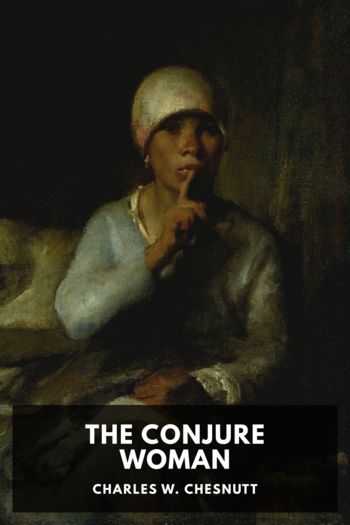The Lives of the Caesars, Suetonius [best book club books for discussion .TXT] 📗

- Author: Suetonius
Book online «The Lives of the Caesars, Suetonius [best book club books for discussion .TXT] 📗». Author Suetonius
See note on Julius, 33. ↩
Prefect of the praetorian guard. ↩
See note on Claudius, 15.1. ↩
See Claudius, 23.1, and the note. ↩
These offices were numerous and varied. Since his apparent purpose was to check ambition and avarice, the senatorial offices referred to were probably military commands and governorships, and the equestrian, procuratorships; see note on Claudius, 24.1. ↩
According to Plutarch (Galba, 2) it was Nymphidius Sabinus, prefect of the praetorian guard, who made this promise. Praepositi would include those who followed his example. ↩
See Galba, 11. ↩
As he was on his way to Rome. ↩
See Galba, 4.3. ↩
The fire should have been blazing brightly and a youth clad in white should have carried the incense in a proper box (acerra, see Galba, 8) and the wine in a more costly and appropriate vessel. ↩
Of Piso. ↩
Of the praetorian guard. ↩
Which he had hitherto refused; see Galba, 16.1. ↩
See note on Caligula, 58.2. ↩
In the Forum; see Augustus, 57.1. Curti lacus: A marsh in the Roman Forum, the site of which was afterwards enclosed by a wall and has recently been unearthed. Various stories are told of its origin. ↩
Iliad, 5.254; Odyssey 21.426. ↩
The meaning of this passage is uncertain and the interpretations various; see the long note in the ed. of Baumgarten-Crusius. The meaning of super manus is particularly dark; the most plausible suggestion is that it is equivalent to ante se. ↩
Like Maecenas, Otho was Tyrrhena regum progenies; Horace Odes, 3.29.1. ↩
See Claudius, 13 and 35.2. ↩
Suetonius does not mention this among the conspiracies against Claudius; see Claudius, 13. ↩
Instead of the modern blanket a sagum, or military cloak, was used, whence the operation was called sagatio. ↩
The penalty for extortion was expulsion from the senate; see Julius, 43.1. ↩
See note on Nero, 34.2. ↩
According to Tacitus Ann. 13.45, the marriage was a real one, as is also implied below. ↩
See note above. ↩
Tacitus and Plutarch give Ptolemaeus as the name of the astrologer. ↩
Between the adoption and the death of Galba, a space of five days. ↩
A pillar covered with gilded bronze, erected by Augustus, in 20 BC, on which were engraved the names of the principal cities of the empire and their distance from Rome. The Roman roads were supposed to converge at that point, but the distances on them were reckoned from the gates. ↩
Proverbial of undertaking something beyond one’s powers; cf. Cicero Epistularum ad Atticum II.16. ↩
To Ostia. ↩
Of the armoury. ↩
This difficult passage is obscure because of its brevity and perhaps through corruption of the text. The same story is told by Tacitus (Histories 1.80) and Plutarch (Otho, 3), but the three accounts seem to vary. According to Suetonius the arms were sent from the praetorian camp to Ostia, to fit out the (eighteenth) cohort, and the riot started in the praetorian camp; the account of Tacitus seems to imply that it was the soldiers from Ostia (joined by the praetorians) that burst into Otho’s dining-room: insidentes equis urbem ac Palatium petunt. The arms in question would seem to be a part of those belonging to the cohort; hence remitti. See however Hofstee, ad loc. ↩
From the temple of Mars, to be carried through the streets in the sacred procession. To begin any enterprise during that time was considered unlucky, and weddings were avoided; see Ovid, Fasti, III.393. ↩
Cybele, whose festival was from March 24 to 30. ↩
Tacitus, Histories 2.24, says locus Castorum (= Castoris et Pollucis) vocatur, and that it was twelve miles from Cremona. There was probably a temple there to the Twin Brethren. ↩
See Tacitus Annals 2.48. ↩
See Caligula, 14.3. ↩
See Claudius, 29.1. ↩
See Claudius, 21.2. ↩
See Tiberius, 43.1. ↩
See Nero, 12.3 and 21. ↩
A faction in the Circus; see note on Caligula, 55.2. ↩
Supinis manibus, “with hands uplifted,” to the gods in gratitude. ↩
See Augustus, 32.2. ↩
See Augustus, 73 and the note. See also Seneca, De Tranquillitate Animi 1.5, placet … non ex arcula prolata vestis … sed domestica et vilis, nec servata nec sumenda sollicite. ↩
Vienne, on the Rhone. ↩
See Vitellius, 18 below. ↩
In deserting Galba for Otho. ↩
Modern Cologne. ↩
See note on Caligula, 54.2. The connection suggests an orgy in celebration of his victory. ↩
A day of special ill omen because of the defeat by the Gauls in 390 BC ↩
Dominicus (





Comments (0)